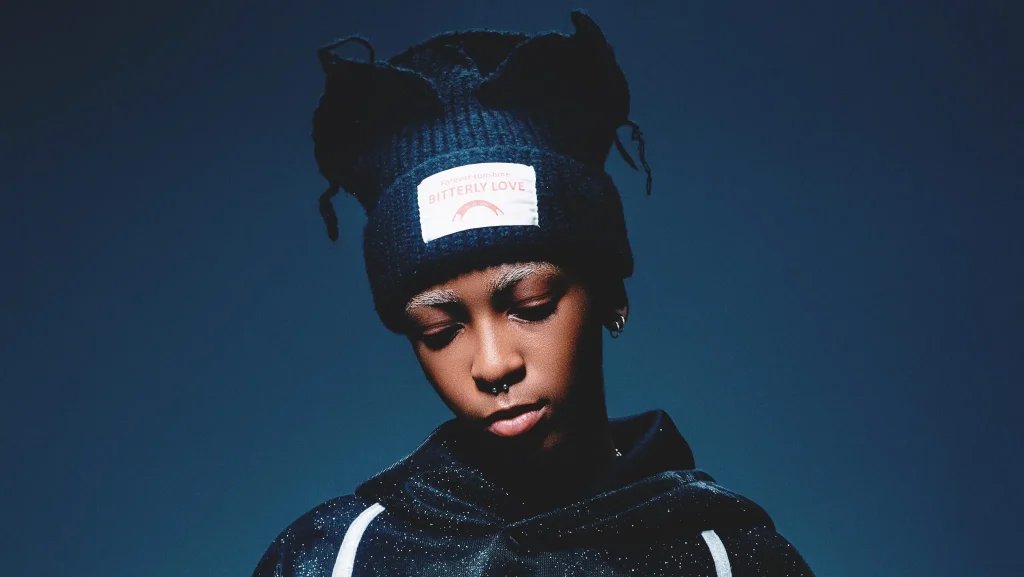It was a simple question, but the answer sparked a storm. When DJ Speedsta asked Cape Town-born rapper K.Keed to freestyle live on his 5FM show, she refused with a calm but firm, “Let’s not do that.” Instead of letting the moment pass, Speedsta pressed her again — igniting a debate that has since spilled far beyond the studio walls.
Some see this as proof that today’s rappers aren’t built like those of old, shying away from one of hip-hop’s longest-standing traditions. Others believe K.Keed was right to stand her ground, refusing to let her artistry be reduced to a quick performance for content. What’s undeniable is that the moment resonated — drawing in fans, artists, and industry voices across the country.
The Spark
The clash happened on 5 Hip Hop Nights, where Speedsta, a veteran of South Africa’s hip-hop media scene, put K.Keed on the spot. When she declined to freestyle, he asked why rappers in 2025 seem reluctant to do so.
K.Keed later expanded on her refusal via Instagram, pairing a snippet of her upcoming track “Harsh Truths” with captions that made clear she saw the request as clickbait. She positioned her artistry as something grounded in carefully crafted work, not improvised verses.
Speedsta reposted her response on X with a mocking tone, and Lady Du soon added her own perspective, reminding K.Keed that talent must be matched with humility and professionalism.
But beneath the noise, one thing stood out: the way Speedsta pushed, even after K.Keed’s boundaries had been made plain. It was a small decision in the moment, but one that turned a radio interview into a cultural flashpoint.
The Reactions
Social media quickly split into camps.
- Some argued that freestyling remains a cornerstone of hip-hop and should still be expected of any rapper worth the name. In their view, readiness is part of the job, and refusing to freestyle erodes credibility.
- Others sympathised with K.Keed, noting that not every artist works through improvisation and that there is nothing wrong with refusing a request that feels inauthentic or opportunistic. For them, the real measure of an artist lies in the music that endures, not a verse delivered on cue.
- A third group acknowledged freestyle’s importance historically but suggested its role has diminished. For them, as long as an artist can deliver in studio and on stage, spontaneous rhymes shouldn’t determine their legitimacy.
The fact that the debate was so animated shows how much weight freestyle still carries in hip-hop’s collective imagination — even in an era dominated by playlists and polished projects.
Tradition Meets a New Era
South African hip-hop has always had freestyle in its DNA. Cyphers in Johannesburg’s inner city and battles in Cape Town shaped careers long before streaming platforms existed. Icons like ProVerb and Tumi sharpened their reputations in those spaces.
Globally, too, freestyle has long been seen as the true test. The XXL Freshman Cypher remains a rite of passage for rising U.S. stars, alongside freestyle platforms like Sway in the Morning and On the Radar, which have given the world viral moments and career-defining verses. But even on these stages, tensions exist. In 2024, rising rapper Rich Amiri walked out before his XXL cypher, refusing to participate and sparking headlines about whether freestyling should remain compulsory for credibility.
The same friction surfaced in 2012 when veteran Canibus infamously pulled out a notepad during a high-profile battle against Dizaster under Canada’s King of the Dot league. Instead of improvising, he read “30 pages of rhymes,” which triggered outrage and a wider debate about what counts as freestyle. Was preparation a crutch, or did it still honour the spirit of the art?
Even outside traditional hip-hop spaces, the expectation lingers. At the 2022 U.S. Grand Prix, commentator Martin Brundle unexpectedly asked Megan Thee Stallion to freestyle on the trackside. She declined, leading to a flood of online debate about whether it’s fair to demand freestyles in contexts that have nothing to do with music performance.
Against this backdrop, K.Keed’s decision feels less like an isolated rebellion and more like part of a broader, global conversation.
Where Do We Land?
The truth is, there’s no easy answer. Should rappers still be able to freestyle? Or is it more important to create timeless music in the studio, with the space to craft something lasting?
At Let’s Get Local, we’re more interested in what our readers think. What we do see, though, is that moments like this should be handled with care. Once K.Keed made her position clear, pressing her further only escalated the situation and distracted from the bigger conversation: what hip-hop demands of its artists today.
That bigger conversation is what matters. For some, freestyle remains the ultimate test — the heartbeat of authenticity. For others, artistry is measured by albums, collaborations, and songs that live beyond the moment. Either way, the K.Keed and Speedsta clash is not just a local spat; it sits within a global debate about the balance between tradition and evolution in hip-hop.
And as long as these conversations keep surfacing — from Gugs to New York, from XXL cyphers to Sway’s studio — the culture is proving it’s still alive, still contested, and still moving forward.



